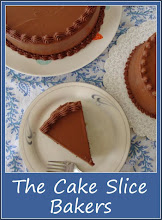 Some of you may remember that a couple of months ago I mentioned I had started attending a cake decorating and sugar flower class. The course ran for 4 months and the last 5 weeks of this was spent planning and completing our very own projects – a Christmas cake, iced and decorated using our new skills. The best part was we were free to choose whatever design we liked, meaning that everyone’s cakes turned out very differently. Some people went very modern with red and gold swirls, others made little penguin figurines or piped on Christmas tress. I decided to go quite traditional and make a classic Christmas flower – the poinsettia.
Some of you may remember that a couple of months ago I mentioned I had started attending a cake decorating and sugar flower class. The course ran for 4 months and the last 5 weeks of this was spent planning and completing our very own projects – a Christmas cake, iced and decorated using our new skills. The best part was we were free to choose whatever design we liked, meaning that everyone’s cakes turned out very differently. Some people went very modern with red and gold swirls, others made little penguin figurines or piped on Christmas tress. I decided to go quite traditional and make a classic Christmas flower – the poinsettia.There is quite a lot of thought, planning and patients required to make a Christmas cake, but as the saying goes ‘good things comes to those who wait.’
 We spent one week looking through books and designing how we wanted our cakes to look. Then we made the actually rich fruit cake at home and kept it for two weeks, feeding it with brandy. After this it was marzipaned, iced and then decorated over consecutive weeks. In-between these times we worked on our decorations. In total it took 6 weeks from idea to finished cake. The actuall cake itself is not that difficult and if you didn’t want to ice or decorate your cake you would be able to have made and be eating your Christmas cake in just two weeks, but it always tastes better if allowed to mature for a few weeks.
We spent one week looking through books and designing how we wanted our cakes to look. Then we made the actually rich fruit cake at home and kept it for two weeks, feeding it with brandy. After this it was marzipaned, iced and then decorated over consecutive weeks. In-between these times we worked on our decorations. In total it took 6 weeks from idea to finished cake. The actuall cake itself is not that difficult and if you didn’t want to ice or decorate your cake you would be able to have made and be eating your Christmas cake in just two weeks, but it always tastes better if allowed to mature for a few weeks.The following recipe is my favourite for a rich fruit cake. Its one I make every year for Christmas, but its also good for special celebration cakes or even as the bases of a wedding cake. It chock full of fruit, moist and full of rich spicy flavours. A rich fruit cake such as this one can be kept for several months, happily getting older and maturing gracefully before being consumed by a bunch of hungry happy people on Christmas day.
Rich Christmas Fruit Cake
 Ingredients
Ingredients175g raisins
175g sultanas
175g currants
80g dried apricots
100g glacé cherries
Zest of 1 lemon
Zest of 1 orange
225g plain flour
1½ tsp mixed spice
45g ground almonds
150g light soft brown sugar
150g butter or margarine
1 tbsp black treacle
3 eggs
2 tbsp brandy
45g blanched almonds
Extra brandy for feeding
Method
Grease and line the base and the sides of an 8inch/20cm tin.
Weight out the currants, raisins and sultanas and then gradually sort through them, a handful at a time, removing any stalks attached to the fruit before placing into a large bowl
 Weigh out the apricots and cherries and cut into small pieces using a pair of scissors. Grate the zest from the lemon and the orange and add it all into the bowl along with the raisins.
Weigh out the apricots and cherries and cut into small pieces using a pair of scissors. Grate the zest from the lemon and the orange and add it all into the bowl along with the raisins.Pour over the 2tbsp brandy, stir and then cover the bowl with clingfilm and leave for at least 12 hours or preferably overnight, to allow the fruit to soak up the brandy.
The following day, preheat the oven to 140C. Grease and line the base and the sides of an 8inch/20cm tin.
Chop the blanched almonds into small chunks and add to a clean large bowl along with the remaining ingredients. Beat for 3 minutes until mixture is smooth and well combined.
Add the soaked fruit to the batter mixture and stir together using a spatula until all the fruit is well coated and distributed.
Spoon the mixture into the prepared tin, level the surface and then create a dip about 2cm deep in the centre of the cake. (This compensates for the usual dome/rise when baking and results in a flatter cake)
 Place the cake in the oven and bake for 2 hours and 45 minutes. After the 2 hours you may want to quickly add a sheet of foil over the top of the tin to prevent it from over browning.
Place the cake in the oven and bake for 2 hours and 45 minutes. After the 2 hours you may want to quickly add a sheet of foil over the top of the tin to prevent it from over browning.Ensure that a skewer inserted in the cake comes out clean before removing from the oven and allowing to cool in the tin.
Prick the top of the cake all over with a fine skewer and then slowly drizzle over another tablespoon of brandy.
Remove the cake from the tin and wrap in clingfilm, leaving the greaseproof paper attached to the cake. (This helps keep it moist).
Place the cake in an airtight container and lave in a cool dark place for a minimum of two weeks to mature. Unwrap it once a week to ‘feed’ with an extra tablespoon of brandy before re storing until required.
The cake can be made anything from 2 weeks to 6 months ahead of time. The brandy preserves it. (Although I have never kept a cake longer than 3 months myself).
To marzipan the cake – this must be done one week in advance of putting on the icing.
 600g marzipan
600g marzipan2 tbsp apricot jam
Icing sugar
2-3 weeks ahead of wanting to eat the cake, it is time to cover it in marzipan.
To do this unwrap the cake, carefully peel off all the greaseproof paper and discard.
Turn the cake upside down and place it onto a sturdy cake board, 2inch wider than the cake. (If you cake rose into a very high peak, carefully cut the cake to a level surface before placing upside down).
Examine the cakes top and sides carefully. Fill any tiny holes or crumbled edges with small pieces of marzipan until all edges are flat and smooth, you don’t want any small gaps for the icing to sag into later.
Then dust a work surface with icing sugar and roll out the remaining marzipan into a large circle, ensuring it is quite a bit wider that your cake as it has to drape over the sides as well as cover the top.
When the circle is wide enough, heat the apricot jam with 2 teaspoons of water in the microwave until melted. Quickly brush the hot jam over the top and sides of the cake which acts as glue.
Pick up your circle of marzipan with the help of the rolling pin, centre it over the top of the cake and place it down, allowing the excess to drape over the sides of the cake.
Use your hands to smooth the draped marzipan neatly over the sides.
Cut off any excess marzipan from round the bottom edge, allowing a ½ cm rim with which to push back against the cake to ensure there are no air holes.
Place the cake in a container and allow the marzipan to firm up and dry out for at least a week before attempting to ice it.
To ice the cake using fondant icing
500g fondant icing
Icing sugar
White alcohol e.g. vodka
After allowing the marzipan to dry out you are now ready to ice the cake.
Roll out the fondant icing in the same way as the marzipan, ensuring once again that it is wider than the cake. A good tip is to make it once inch/2.5cm wider that the cake board, which is already wider than the cake.
When the icing is rolled out, brush the cake with the white alcohol and cover the cake with the icing as before, carefully smoothing down the sides and cutting away any excess.
You can then use a cake smoother to rub over the top and sides to remove any fingerprints or untidy folds, but this is not essential.
After icing, place the cake in a large cardboard box and leave for a further week before decorating.
The cake needs to breath, and the icing will sweat if kept in an airtight container. If you do not have a cardboard box large enough, place in your normal container but leave the lid offset to allow the air to circulate. However, if you wish to crimp the edge, as I have done with my cake, you will need to do this immediately after icing the cake while the icing is still soft.
One week after icing, your cake, you are free to decorate it as you please. I chose to crimp the top of edge of my cake to add an interesting border, which requires a crimping tool that you can buy from cake decorating shops.
During the times the cake was setting, I made my poinsettia sugar flower. This has to be done by cutting out each leaf from special sugar flower paste and attaching them onto florist’s wire before being twisted or draped into shape and allowing to dry out. The leaves and petals of the flower are then taped together, one by one, using florists tape until the complete flower is formed. The ends are cut and they are placed into a small plastic flower folding tube (called a flower pick) which is then pushed into the cake to display your flower.
 For me, this was the most difficult and nerve wrecking part of the cake. Making the petals was fine, but when it came to taping them together, three of my petals broke off from their wires! Luckily I managed to reattach two of them so all was not lost. The petals were so fragile that I held my breath every time I accidentally knocked two of them together. I was so relieved when it was finished and displayed on my cake, but then my next challenge was driving it home. I winced every time I went over a bump in the road, imaging the leaves knocking together and breaking. I drove slowly (thankfully it was quite late and no one else around on the roads) and amazingly it made it home in one piece – phew!
For me, this was the most difficult and nerve wrecking part of the cake. Making the petals was fine, but when it came to taping them together, three of my petals broke off from their wires! Luckily I managed to reattach two of them so all was not lost. The petals were so fragile that I held my breath every time I accidentally knocked two of them together. I was so relieved when it was finished and displayed on my cake, but then my next challenge was driving it home. I winced every time I went over a bump in the road, imaging the leaves knocking together and breaking. I drove slowly (thankfully it was quite late and no one else around on the roads) and amazingly it made it home in one piece – phew!
I also cut out tiny holly leaves of sugar flower paste (although fondant would work just as well for flat decorations) and used them to decorate the edge of the cake. I then tied a thin red ribbon around the centre and piped shells in royal icing around the base and piped small red dots of royal icing in-between each shell.

I was absolutely thrilled with how the cake turned out. Despite making many Christmas cakes in the past, I have never attempted to decorate one properly before, but my cake decorating course has really given me the confidence and skills I needed. It took a lot of time, effort, nerves and planning but I really feel the end result was worth it. It will look so special displayed on Christmas day and will be my oven special contribution to the foodie festivities, which if I’m honest, are usually left to my parents. I had such a lot of fun at my cake class and met a lovely group of ladies. It has inspired me to keep on practising and trying out new designs for future celebrations.

Happy Christmas to you all!

Happy Christmas to you all!







11 comments:
Really beautiful Christmas Cake. I've taken a break this month from my classes, but plan to take the final sugar paste level next month.I know what you mean about transporting it home after all that.But cakes are tougher than we think.
Oh wow! That looks amazing. Too good to eat!
It's perfect! Your family is going to be sooo happy when you show them the cake. All you need now, is a cake stand to match the beauty the of the cake.
I have a confession (>_<) I am really not a fan of dried fruit concoctions (Christmas cake, traditional wedding cakes, fruit mince pies) but I have to comment on how utterly GORGEOUS your decorated cake is - it looks perfectly Christmassy :)
Ellie @ Kitchen Wench
wow your cake looks fabulous - congratulations on all the work - I have done some very amateur cake decorations in the past but nothing as professional looking as yours - am I am still to attempt a fruit cake but I like the look of your recipe - maybe one day it will happen - have taken down the recipe for inspiration
Oh wow, I had to stop and look at that cake. You did a really fantastic job with it. I love a stark white cake with gorgeous colors on it.
What a beautiful cake Katie! I would be proud to make something as gorgeous as this.
That is the most beautiful Christmas cake I've ever seen. I am so impressed. You will surely have a wonderful bakeshop one day.
Have just been looking again at the pictures of your Christmas cake Katie.I still can't get over how stunning it looked before we deomlished it by eating it!
I think that your decorating course has really paid off that cake looks magnificent.
this looks amazings
thank you so much for showing me how to make a poinsetta.
i am doing a highschool class this term and need to make a xmas cake :)
the poinsetta will (hopefully) look amazing on it
thankyou
(and imagine getting a cake home on a school bus - especially OUR school bus route :S uhoh!)
Post a Comment